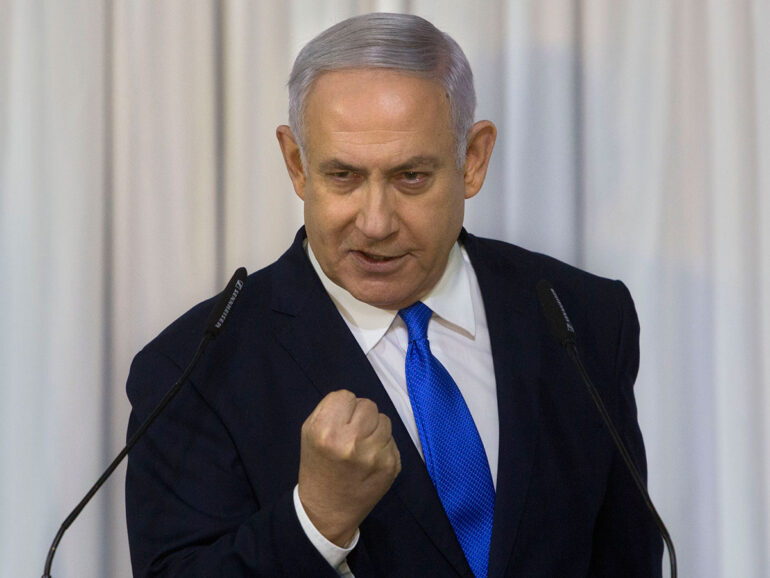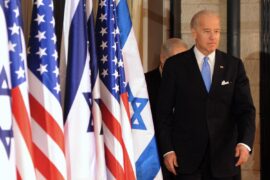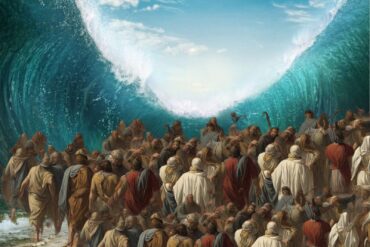Strategic Voting
When voting in a parliamentary representative democracy, it’s important to know how the system works in order to vote strategically on behalf of one’s values and vision for the country. If Tuesday’s vote taught us anything, it’s that most Israeli voters don’t understand how the political game is played here and sadly fell into the trap of relating to Israel’s 2019 elections as if our state works according to a two-party system.
The forces most responsible for manipulating the public into this mindset were Prime Minister Binyamin Netanyahu (Likud) himself and the Israeli media that hates him.
Netanyahu continuously propagated the falsehood that the only way he would remain in his post would be for Likud to win more seats than any of its rivals when in fact the party head with 61 Knesset seats worth of recommendations is generally tasked by the president with forming and heading a government. Netanyahu knows the reality very well, having been appointed to form a coalition following the 2009 elections, despite his Likud winning one seat less than Tzipi Livni’s Kadima party. Because enough party heads recommended to the president that Netanyahu be prime minister, he was given first crack at putting a government together.
The media, for its part, largely ignored the fact that this election cycle was arguably the least linear in Israeli history and presented the public with a simplistic race between two major parties and two mythical “right” and “left” blocks (the latter of which somehow includes Palestinian factions that could never bring themselves to sit with Liberal Zionist parties in a coalition). The notion of blocks creates the impression of large core and small satellite parties on each side of a partisan divide rather than showing the complex reality of each party being a unique Israeli tribe with its own set of issues, values and vision for the state.
The combination of these factors drove most Israelis to overwhelmingly vote for either Blue & White or Likud.
For weeks, we have been making the argument that these elections were not actually between Netanyahu and Benny Gantz (Blue & White) or between some mythical “left” and “right” blocks but rather between small and large parties. Given United States President Donald Trump’s preference for a Netanyahu-Gantz coalition in order to accept his plan to divide our country into two separate states, we highlighted the need to support smaller parties in order to prevent the possibility of a Netanyahu-Gantz government controlled by Trump.
Anyone voting with Eretz Yisrael in mind should have therefore supported one of the small ideological parties loyal to the homeland. Doing so would not have prevented Netanyahu from becoming prime minister but would have strengthened the positions of these small parties during negotiations to form a coalition. It’s extremely unlikely that the Bayit Yehudi, National Union, HaYamin HeḤadash or even Zehut parties would have recommend anyone other than Netanyahu to lead the country. But in addition to recommending he form the next government, these factions would have also fought to make sure he resist the Trump agenda.
Netanyahu’s Fatality Move
In the last days leading up to the vote, Netanyahu delivered a political death blow to Naftali Bennett and Ayelet Shaked. By publicly expressing support for annexation in the West Bank while at the same time fear mongering that Likud requires more seats than Blue & White for him to remain in office, the prime minister took all the votes in play between Likud and HaYamin HeḤadash, causing the latter to then fall below the minimum electoral threshold of 3.25%.
Netanyahu had to have known what he was doing. Because he understands Israel’s political game better than anyone, it’s hard to believe he accidentally pushed too hard. If Bibi was really interested in forming a nationalist government, his political interest would have dictated ensuring Bennett and Shaked pass the threshold, personal issues between the prime minister and the HaYamin HeḤadash leadership notwithstanding.
The fact that the prime minister intentionally went after Bennett’s voters in the final days before the vote indicates that his plan is likely not to form a nationalist government but rather a unity government with one, two or all of the parties comprising Blue & White. That he obliterated one of the only Knesset factions principally opposed to territorial compromise also indicates that Netanyahu might be planning to accept Trump’s new plan.
Whether Netanyahu destroyed Bennett by accidentally pushing too hard or because Trump instructed him to create the conditions for his new plan to be accepted, what’s clear is that the prime minister must have enjoyed cutting a long-time nuisance down to size.
What happened to Zehut?
The major surprise of the election turned out to be the party everyone had been expecting to be the surprise of the election. Up until the votes were counted, Zehut leader Moshe Feiglin seemed to be on top of the world, having soared in the polls and portrayed by the media as the expected political king maker.
Feiglin introduced new ideas into the mainstream and significantly raised the intellectually level of the nation’s political discourse. Up until election day, he appeared to be successfully taking votes away from parties across the political spectrum.
But Zehut peaked too early in the election cycle, allowing time to be attacked by all those threatened by the party muscling in on their constituencies. And some of Feiglin’s behavior once high on his own success turned off voters that were considering Zehut but also considering other options. In the end, these undecideds obviously voted elsewhere and Feiglin’s party fell far short of the 3.25% threshold.
One of the clear lessons learned from Israel’s 2019 election cycle is that the 3.25% threshold is inappropriately high. In a country where every two Jews are half-jokingly said to hold three opinions, a larger variety of small parties would make the political system more representative of the people and native culture of Israel.
In addition to making the system more authentically Jewish, it would simultaneously make it more democratic by no longer preventing hundreds of thousands of Israelis from feeling unrepresented when their parties don’t make it into Knesset.





